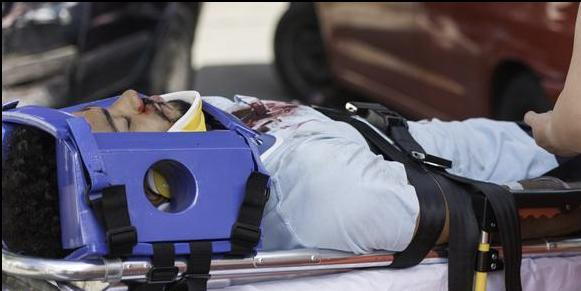
- posted: Mar. 05, 2020
- Personal Injury
Head trauma and brain injury can cause serious problems that forever alter the victim’s life. If you are with someone who suffers a head or brain injury, or if you have suffered one yourself, there are several crucial steps that will increase the likelihood the victim receives appropriate medical treatment. If you are able to help, these are the steps you should take:
- Call 911 right away — Tell the 911 operator how the person was injured and any visible symptoms of trauma. The 911 operator may guide you through the next steps.
- Check airway, breathing and circulation — If a person is speaking or breathing steadily, their airway is likely clear of obstructions. Feel for a pulse to check circulation. If a person isn’t breathing and has lost a pulse, cardiopulmonary resuscitation (CPR) should be administered.
- Don’t let them move — To help prevent paralysis when there’s the possibility of a spinal injury, keep the injured person still until medical professionals can stabilize their head, neck and back.
- Keep the helmet on — If a bike rider, someone involved in a contact sport, or anyone else wearing a helmet is injured or unconscious, leave their helmet on their head. Medical professionals can take special precautions when removing it.
- Don’t remove impaled objects — If an object is sticking out of someone’s head, only a trained medical professional should remove it.
- Look for signs of skull fracture — Apparent deformities in the skull, bruising around the eyes or behind the ears, and fluid leakage from the nose or ears are possible signs of a skull fracture. Do not apply direct pressure to a suspected skull fracture. Lay a sterile cloth or gauze over the wound.
- Apply direct pressure —When an injured person is bleeding from a head wound that does not appear to be a skull fracture, apply direct pressure to the wound with a sterile cloth or gauze.
- Monitor them — Continue watching the injured person to see if their condition worsens or remains stable. If they stop breathing and lose a pulse, perform CPR.
Even if an injury appears to be minor, more can be going on inside the victim’s head than is immediately apparent, such as a concussion or bleeding in the brain. Head injuries can worsen over time, with rapid health deterioration in some cases. If a person exhibits any of the following signs, seek medical help immediately:
- Loss of consciousness, even briefly
- Severe headache
- Memory loss
- Double vision
- Unequal pupils
- Vomiting
- Seizures
- Abnormal behavior
- Stiff neck
- Paralysis in or one or more limb
Unfortunately, taking all the right steps after a head injury cannot always prevent permanent damage or death. When a head or brain injury is someone else’s fault, victims or their representatives may be entitled to monetary compensation to help with medical bills, lost income and other expenses. The attorneys at Calwell Luce diTrapano PLLC in Charleston, West Virginia skillfully handle personal injury cases and wrongful death lawsuits. Call us at 800-876-5529 or contact us online to schedule a consultation.



